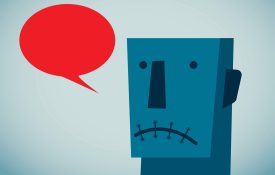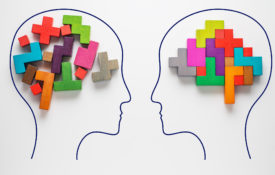-

The Costs of the Secrets We Keep
Psychological experiments historically included lab-invented secrets and simulated social interactions. But a fresher body of research explores the secrets people keep in their everyday lives, experimental psychologist Michael Slepian wrote in a new article for Current Directions in Psychological Science. Visit Page
-
Distracted Driving Is More Dangerous Than People Realize, New Research Shows
In 2021 more than 3,500 drivers in the U.S. alone died in traffic accidents linked to distracted driving. Using a cell phone is the primary source of distraction, but entering navigational information, trying to eat and performing Visit Page
-
That Tip-Of-The-Tongue Feeling May Be an Illusion
Sometimes you know there’s just the right word for something, but your brain can’t find it. That frustrating feeling is called the tip-of-the-tongue (TOT) state—and for decades psychologists assumed it was caused by a partial Visit Page
-

Careers Up Close: Joel Anderson on Gender and Sexual Prejudices, the Freedoms of Academic Research, and the Importance of Collaboration
Joel Anderson, a senior research fellow at both Australian Catholic University and La Trobe University, researches group processes, with a specific interest on prejudice, stigma, and stereotypes. Visit Page
-
Battle of the Brains: Pigeon vs. AI Learning? It’s Pretty Similar
The champions of unclouded thought were recently put to the test in a study that sought to explore if an illogical puzzle could be more easily solved by an animal with the associative learning approach Visit Page
-

Experimental Methods Are Not Neutral Tools
Ana Sofia Morais and Ralph Hertwig explain how experimental psychologists have painted too negative a picture of human rationality, and how their pessimism is rooted in a seemingly mundane detail: methodological choices. Visit Page

